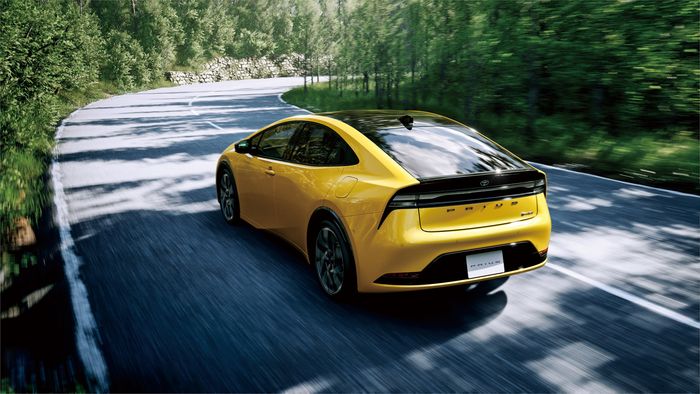
The electric vehicle (EV) market has grown rapidly in recent years. However, from around 2023, signs of a slowdown in growth are beginning to appear. The reasons for this include the following issues.
- There are significant challenges to the spread of EVs, such as lack of charging infrastructure, concerns about cruising range, and high prices.
- Global EV market growth shows signs of slowing
In response to these challenges, Toyota has the potential to gain an advantage in the market by leveraging the strengths it has cultivated in hybrid vehicle technology. Toyota has developed an EV-only model called the bZ series, and in order to achieve carbon neutrality, Toyota is very strong with a comprehensive lineup of EV, HEV, PHEV, and FCEV options . Furthermore, for the reasons mentioned above, we realized that the market is difficult for only EVs, and there is a possibility that demand for HEVs and PHEVs will continue to increase, and Toyota’s future hybrid technology may overwhelm other companies. .
In February 2024, Mercedes-Benz announced that it will continue to sell and develop internal combustion engine vehicles until the 2030s . This is a major change in direction from the original goal of making all vehicle types electric vehicles (EVs) by 2030. This may be because the world is starting to realize that EVs alone are not enough.
ADVERTISEMENT
ADVERTISEMENT
Current status and challenges of the EV market
In recent years, the automobile industry has been accelerating its shift to electric vehicles (EVs) . Environmental regulations are being tightened around the world , with the European Union (EU) deciding to ban the sale of new gasoline and diesel vehicles by 2035 . The EV market is growing rapidly, and many automakers are accelerating the shift to EVs. However, there are still some challenges in the EV market.
- Lack of charging infrastructure : The number of charging facilities is still small compared to gas stations
- The issue of charging time : It takes about 5 minutes to refuel with gasoline, but charging time for an EV is as long as 2 to 6 hours.
- Concerns about cruising range : Cruising range is shorter than gasoline cars
- High vehicle price : Vehicle prices are higher than gasoline vehicles
ADVERTISEMENT
ADVERTISEMENT
Charging infrastructure has not kept pace
The development of charging infrastructure is essential for the spread of EVs. However, the current charging infrastructure is not sufficient, which is a factor preventing the spread of EVs.
EV vehicle prices are high
EVs are more expensive to develop than internal combustion engine vehicles. As a result, the price of EVs may rise, reducing consumers’ desire to purchase them.
ADVERTISEMENT
ADVERTISEMENT
Battery range is short
Currently, the cruising range of EVs is still shorter than that of gasoline vehicles. They are unsuitable for long-distance travel and are a factor limiting the spread of EVs.
Charging time issue
It takes about 5 minutes to refuel with gasoline, but it takes a long time to charge an EV, 2 to 6 hours. Although you can charge your car in a short time using a quick charger, the number of quick chargers installed is still small. Longer lines mean that you have to park your car in that spot for a long time, making it more difficult to find a charging spot.
Battery disposal issue
Batteries used in EVs must be disposed of at the end of their lifespan. However, a method for disposing of batteries has not yet been established, and this poses an environmental problem.
Unless these issues are resolved, it will be difficult for EVs to replace all car models.
Toyota’s strengths
In response to these challenges, Toyota has the potential to gain an advantage in the EV market by leveraging the strengths it has cultivated in hybrid vehicle technology.
Toyota is the world’s first mass-produced hybrid vehicle, the Prius. Since then, we have been actively working on the development and popularization of hybrid vehicles, and currently boast the world’s top market share.
ADVERTISEMENT
ADVERTISEMENT
Abundant battery technology
Toyota has a wealth of experience and know-how regarding battery technology, having developed and sold hybrid vehicles for many years. By utilizing this technology in EVs, it is expected to solve issues such as lack of charging infrastructure and concerns about cruising range.
Hybrid High fuel efficiency
Toyota’s hybrid cars have better fuel efficiency than gasoline cars. This is because the combination of the engine and motor allows the vehicle to run efficiently. By combining the engine and motor, a quiet and comfortable ride is achieved. In addition, the powerful acceleration of the motor allows for smooth driving. Hybrid cars have excellent environmental performance because they emit less CO2. It can be said to be an environmentally friendly car as it can significantly reduce CO2 emissions compared to gasoline cars.
Strengths of production system
Toyota boasts a world-class production system. By leveraging this strength, it will be possible to sell EVs at low prices.
ADVERTISEMENT
ADVERTISEMENT
Strength of customer base
Toyota has a large customer base all over the world. By leveraging this foundation, it is possible that EVs will be able to spread smoothly.
summary
The EV market faces challenges such as a lack of charging infrastructure, uncertain driving range, and high prices. However, Toyota has the necessary technological capabilities, production structure, and customer base to overcome these challenges, which could give it an advantage in the EV market. Furthermore, there is no doubt that if Toyota turns its attention to things other than EVs due to changes in the market, this will be an even better trend for Toyota.
